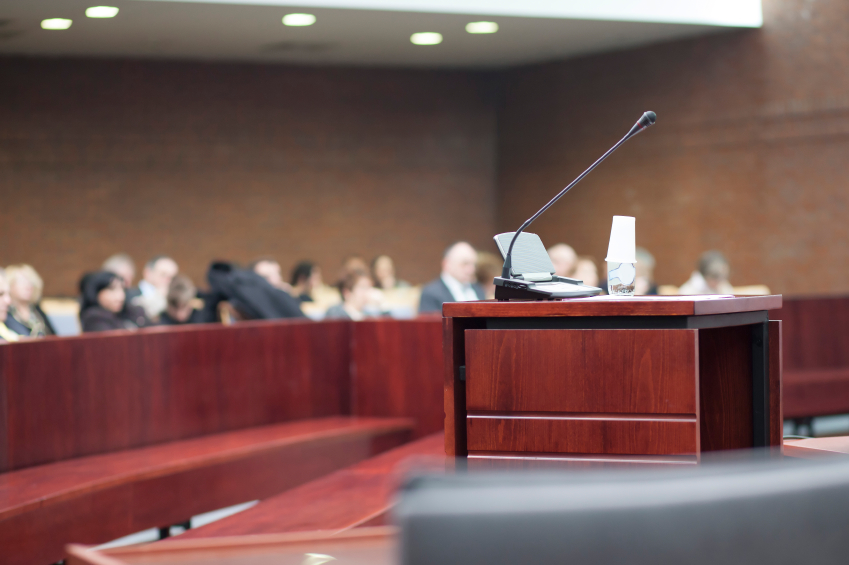There are a lot of legal TV shows ranging from Judge Judy to Law & Order. Must of what you will see in an actual personal injury trial is much less exciting and entertaining that what you will see on the big screen.
Below is a brief overview of what you can expect to see in a personal injury trial at the Civil Courthouse. There is quite a bit that witnesses, jurors, and even parties will not see. The lawyers and the Judge discuss many aspects of trial before the jury ever comes into the pictures.
What to Expect in a Personal Injury Trial
Picking a Jury
Juries decide both criminal and civil matters. Our Constitution provides for juries in both instances. The Sixth Amendment guarantees that those accused of a crime have a speedy and public trial. The 7th Amendment provides for a jury in civil cases. Other than voting, serving on a jury is one of the two direct ways that citizens can participate in government. Heed the call when you receive your jury summons.
Selecting the jury, or voir dire, is where the attorneys and parties learn about the jurors. Attorneys will ask the jurors questions about their views and beliefs. There are some misconceptions about this process. First, people believe that if they do not talk and share their beliefs during this process that they will not be picked for the jury. Not true. People also believe that if they offer extreme and sometimes false views on issues, they will escape jury duty. Also, not true.
Individuals who become jurors take their job very seriously. Participate honestly in this process as this trial is important to parties involved and to our society overall. Safety rules are often the result of litigation, and civil litigation has historically shaped some of the most important rights that we have.
Opening Statements
Even though jurors may have some understanding of the facts of the case after voir dire, opening statements are where both sides begin to explain their case. Opening statements are not evidence. Rather they are summaries of what both sides expect the evidence to be. Openings are road maps to where the trial will take them.
Witness Testimony
After opening statements, each side will put on evidence. Much of the evidence comes in the form of witness testimony. Witnesses can include the parties themselves, experts, people who witnessed the incident in question, and medical providers. Expert witnesses can include parties who will describe how the incident may have happened or engineers to discuss improper product designs.
Each side will offer witnesses, and the other side has the opportunity to cross-examine witnesses. Cross-examination is typically depicted in movies and TV, as this aspect of a trial can be more contentious and dramatic.
Closing Arguments
After the evidence is presented, each side has the opportunity to present closing arguments to the jury. Like Openings, Closing Arguments are not evidence. This is the opportunity for the parties to summarize the evidence in the most persuasive manner possible.
In a civil trial, typically the plaintiff’s attorney will argue first, followed by the defense. Thereafter, the plaintiff’s attorney has a second opportunity to talk to the jury. Each party will argue those facts that best support their case while at the same time emphasizing that which discounts the other side.
Jury Deliberation
After Closing Arguments, the Judge instructs the jury on the law to be applied to the case. These instructions can be lengthy, especially in complicated cases. After learning the law applicable to that particular case, the jury starts deliberations.
During deliberations, the jury discusses the evidence. They talk about which pieces of evidence are important to them and which witnesses they believe or don’t. During deliberations, jurors may vote several times, before reaching a final decision, about the desired outcome.
The Verdict
Once the jury has finished deliberations and reached a decision, they will report their verdict to the judge. The verdict will be read aloud in the courtroom.
Verdicts can change public perception, shape public policy, and become the basis for new law. The importance of jury service cannot be stressed enough. Look at jury duty as an opportunity to be the conscience of your community and to say will and won’t be accepted in your community.
This was meant to provide a brief overview of what to expect in a personal injury trial. You should direct any in-depth questions that you have to your attorney.


